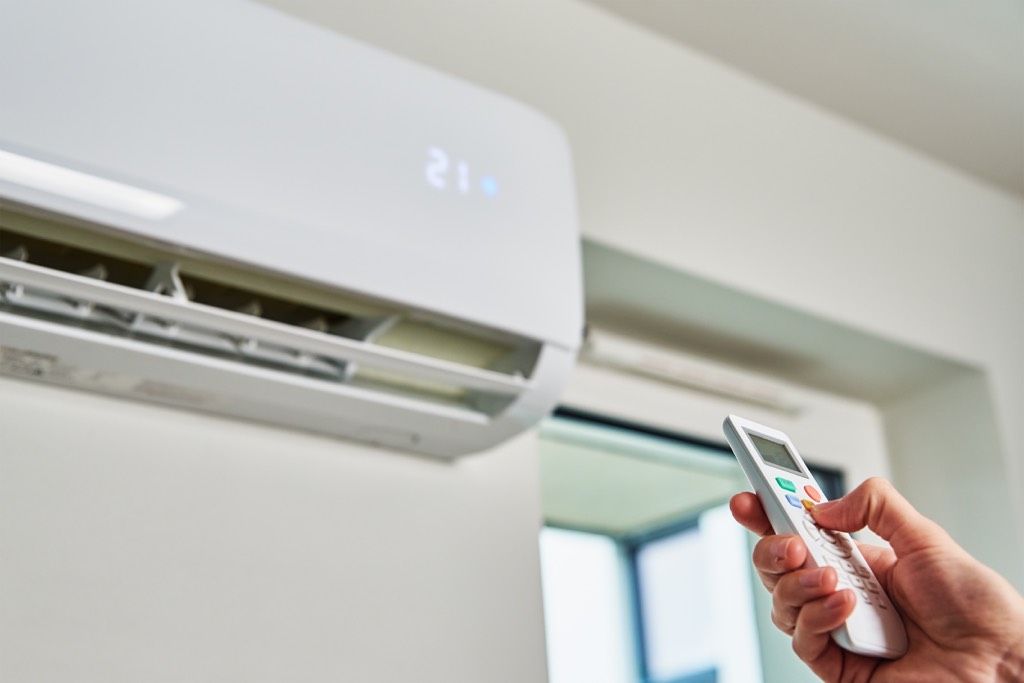Are you looking for a quick solution for air source heat pump installation? If so then air to air heat pumps might be for you. These heat pumps distribute hot air into your home just like an air conditioning unit in reverse. We take a closer look at how air to air heat pumps work below.
How a heat pump works
All heat pumps work in the same way. They take heat from outside your home, compress it to make it hotter, and then distribute it inside. Air source heat pumps take heat from the air outside your home, while ground source heat pumps take heat from the ground.
Air to air heat pumps distribute this heat via hot air piped directly into your home. This is much like an air conditioning system. Air to water units use the heat collected from outside your home to heat radiators. They work more like a traditional gas boiler system.
Please see our what is an air source heat pump article for more information on how heat pumps work.
What are the advantages of air to air heat pumps?
The good news about this type of heat pump is that they are normally the cheapest to install. There is no need for this type heat pump to interface with a radiator system, or to heat hot water. This makes them very simple to put into houses.
Another advantage of air to air heat pumps is that, depending on the model, you can reverse them. This means you’ll be able to have cool air during the summer months as well as hot air during the winter.
What are the disadvantages of air to air heat pumps?
The main disadvantage of an air to air system is that this does not heat your hot water. You will need another system to do this. Some homeowners install an air to air system to heat their house, and retain their gas boiler to heat hot water. Some homeowners install an air to air heat pump and an electrically driven hot water cylinder.
Another disadvantage of air to air systems is that they are more suited for open plan properties. For the system to work properly the air needs to flow freely in your home. If you live in a property with lots of smaller room, you may be better off with an air to water system.
How is the heat circulated?
Air to air heat pumps deliver warm air by fan coil units (blowers) or air ducting pipes. A blower is a wall mounted unit, similar to an air conditioning unit. Air ducting piping is typically hidden in a wall or ceiling void and is only visible through a grill.
Blower systems can be single head or multi head. A single head system has one outside unit and one inside unit. These are cheap to install but are only really useful for very small spaces. A multi head system has one outside unit and several inside blower units. These are designed for multi room systems where you will generally need a blower in each room.
Ducting systems are much less obtrusive – you don’t have an unsightly blower unit inside each room of your house. But you will need to have a ceiling void in your home, with adequate space to run the ducting pipework. This is not common in homes in the UK. Even if you do have this space, it might not be easy to access without cutting into your ceiling. For this reason, ducting systems are more likely to be used in new build properties where engineers can design the home from scratch.
Is my home suitable for an air to air heat system?
As with all heat pump solutions, the answer to this question will depend on a few factors – the design fabric of your house is, how old your house is, how well it retains heat and how much space you have.
Most homeowners in the UK go for an air to water heat pump as this mimics more closely a traditional gas boiler system. There is no need for a separate solution to heat your hot water, and you can generally repurpose a radiator system to work with your heat pump.
Whichever system you plump for however, you will still need to look at how well your home retains the heat which is generated. If you live in an older, less energy efficient home, you may need to make some upgrades. Please check out our articles on Is my house suitable for a heat pump, and How much does an air source heat pump cost for more information.

